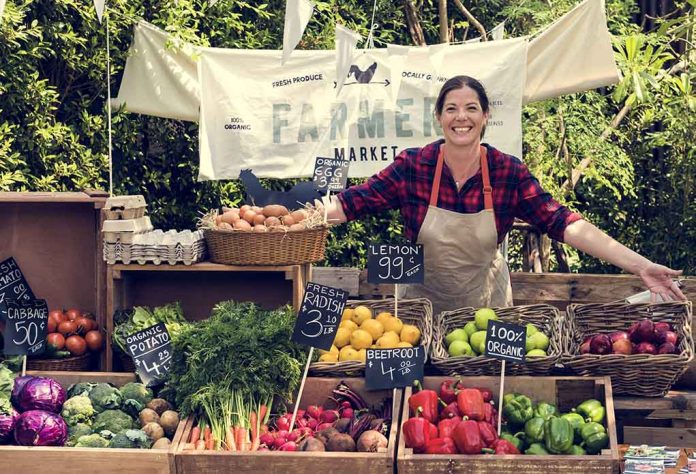(HealthyExaminer.com) – The local farmer’s market can be a wonderful place to find fresh produce and baked goods while supporting the local economy and your community. It’s not just good for your health, but also for the environment, to shop locally for some good, old-fashioned farm-to-table ingredients. It might seem like the smartest choice to source seasonal produce, but it’s important to make sure to factor in the following safety tips when visiting your local farmer’s market this season.
Safety Tips for Shopping Your Local Farmer’s Market
Food safety is important no matter where you shop. However, there are particular considerations you’ll want to keep in mind when shopping at a farmer’s market. These safety tips can help you avoid food-borne illnesses and other dangerous contaminants.
Pay attention to food vendor safety practices.
Are garbage cans covered? Do they use gloves when handling food? How the food vendor at your local market handles their product can impact the condition of the food you purchase. Paying attention will help you make safe, healthy choices.
Only purchase pasteurized products.
Milk, milk products, juice, cider, and honey are all products that need to be pasteurized to kill harmful bacteria caused by Listeria, which can be particularly dangerous to pregnant women, children, and the immune-compromised. Check for labels to make sure the products are pasteurized. If you’re not sure, ask.
Avoid damaged items when possible.
Produce with bruises, cuts, insect holes, and/or mold should be avoided. Check for cracks when purchasing eggs. Damaged items could contain harmful bacteria that could lead to food-borne illnesses. Shop early at your local farmer’s market for the best selection.
Take care with ready-to-eat items.
Ready-to-eat items are often available at local farmer’s markets. Pay attention to food storage practices before making a purchase. Hot foods should be kept hot, and cold foods should be kept cold. Bacteria can flourish when food is between 40 and 140 F. If you purchase ready-to-eat items at the correct temperature, take care not to leave them in a vehicle while running other errands. Perishable items will spoil if left unrefrigerated for two hours (one hour when the temperatures soar above 90F).
Wash reusable grocery totes.
The grocery totes you use at the local farmer’s market are an eco-friendly choice, but it’s important to keep them clean to avoid spreading bacteria. Wash them regularly, and also take the time to wipe down any counters you place them on when you come home and put away your grocery items. When transporting items in these totes, be sure to keep hot and cold items separated to avoid bacteria spreading.
Best Practices to Keep in Mind
Once you’re home with the local food from your farmer’s market, it’s always a good idea to carefully wash and dry your produce. Refrigerate items that need to be chilled including fruit and vegetables that have been cut up. Taking a few basic steps to clean and store these items could be the key to protecting yourself and your family from the dangers of food-borne illnesses and food poisoning.
Shopping at your local farmer’s market can be a wonderful experience for the whole family. By following these safety measures, you can enjoy locally-grown, fresh, and seasonal produce to support your healthy lifestyle. You can shop locally, eat seasonally, and–most importantly–stay safe.
Copyright 2023, HealthyExaminer.com














